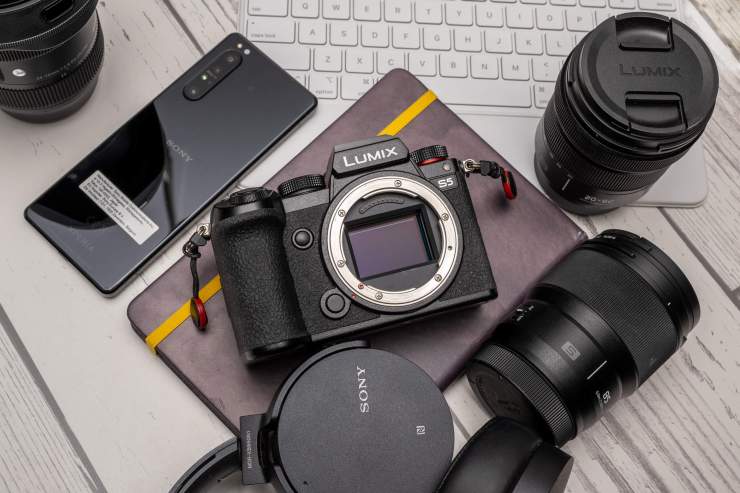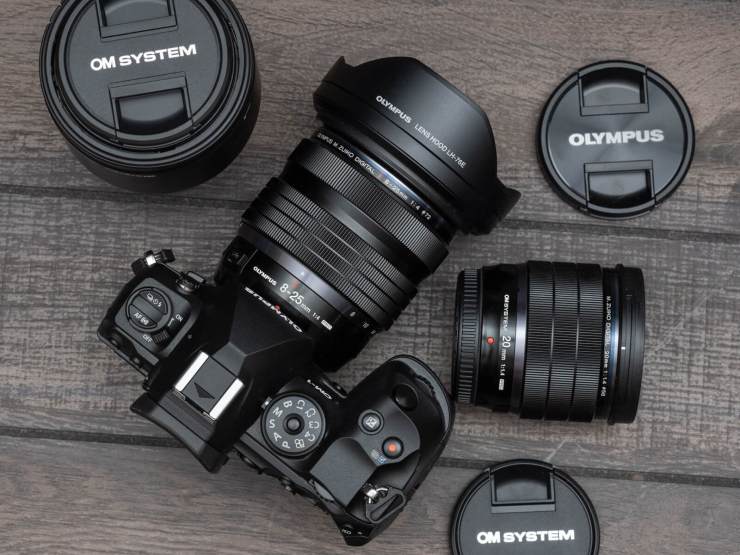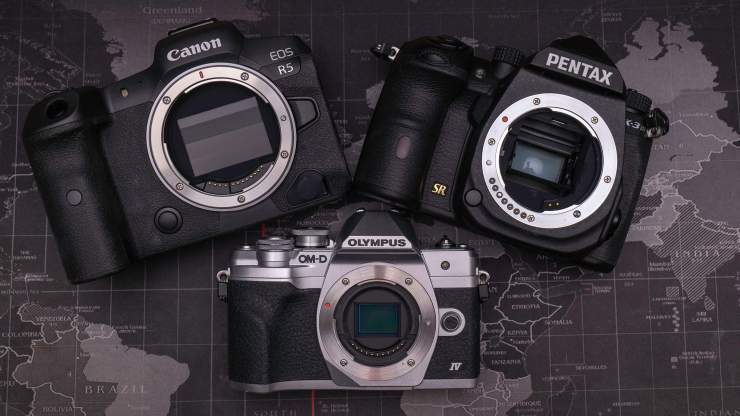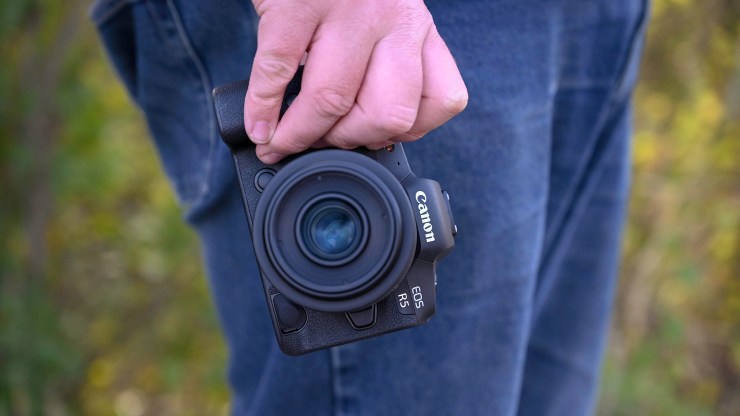Watch any YouTube influencer or visit countless blogs, and you’ll find that many influencers will tell you that unless you shoot with a full-frame camera, you’re just wrong. However, what we know and preach here at Photofocus is that all cameras — and the sensors they employ — have specific strengths and weaknesses. So, let’s talk about that.
The biggest problem with influencers is that many see their cameras as status symbols rather than tools. They’ll waffle on about how you cannot be a professional photographer unless you use a full-frame camera. They’ll scream and shout about why a full-frame camera is superior to APS-C and Micro Four Thirds cameras. Some ‘experts’ will even ridicule photographers if they don’t shoot RAW.
It’s childish, toxic behavior that should ultimately be ignored because what’s right for them might not be suitable for you.
Buy a camera that’s right for you.

This year, I made a decision about my photography business and where I wanted to go with my photography. After many years in the industry, I decided to pull out of the event photography game. The line between passion and work had been crossed too many times, and I wanted to get my joy for photography back.
I decided to start creating for myself again and sell my images like I used to. So far, I haven’t regretted my decision one bit. I am making more images than ever, and I’m having fun. However, one thing that crossed my mind was that the gear I owned wouldn’t be the best for the job at hand.

So, I sold all of my full-frame camera gear (Panasonic Lumix S5), and I switched to Micro Four Thirds with the OM-1 (read my review here). The OM-1 and M4/3 lenses are light and they don’t make me sacrifice quality. The 2x crop of Micro Four Thirds makes birding and wildlife photography easy. There are plenty of wide-angle lenses for my landscape photography as well. The IBIS is on another level and makes photographing anything easy.
This camera system fits my new needs incredibly well. I’m thrilled with it. I still complete the odd portrait session here and there, and while M4/3 cameras aren’t the best for this work, I still get the job done with no complaints from my clients. The OM-1 and the Micro Four Thirds platform are suitable for my needs. I’m content, and I know that gear is not something I need to worry about. It’s liberating.
Evaluate your needs

Instead of falling for the hype surrounding one particular type of camera, weigh up your needs and buy into a platform that suits YOUR needs and not someone else’s. Start by looking at what kinds of photography you enjoy, and then you’ll be able to narrow your ideal camera down.
Could you benefit from a crop sensor camera? Do you need to be able to shoot in low-light situations? Maybe you mainly focus on portraits? Do you shoot a mixture of all of the above? Once you have done this, you’ll be able to make a sound decision on what you actually need to create the images you want. If you do this, you’ll be far happier with the gear you purchase.
There’s no such thing as a one size fits all camera

Buy into Micro Four Thirds if you need extra reach to help with wildlife photography or if you want a lightweight setup for travel. On the other hand, if you need to strike a balance between extra reach and more depth of field, APS-C cameras might be the right choice for you. Do you need better low-light performance and even greater depth of field? A full-frame camera will serve you better than M4/3 and APS-C. Do you need to capture a lot of fine details? A medium format camera will be best.
There’s a lot to take into consideration when buying a camera. However, you’ll be OK if you ignore the hype trains online and focus on what matters to you. Pick the tool (remember, that’s all a camera is) that will help you get your job done efficiently. You might find that you need multiple cameras based on your needs. That’s fine too. The fact is, every camera platform has pros and cons.
There is no one-size-fits-all option when it comes to cameras and the sensors they employ. Those who just sing the praises of one type of camera are selling you short. So, do your research and make your own mind up about the various cameras on the market. Also, just for the record, shooting with a specific type of camera because you think it makes you superior and only shooting RAW doesn’t make you a pro; it makes you naive.
Tell your story with the second annual Visual Storytelling Conference!
Experience four days of interactive, online training sessions featuring a range of educational content with experienced photographers and content creators. This free event kicks off with a series of technical boot camps to build essential skills, followed by live, online sessions on photography, video, business and social media. Join live from March 10-13, 2022!
